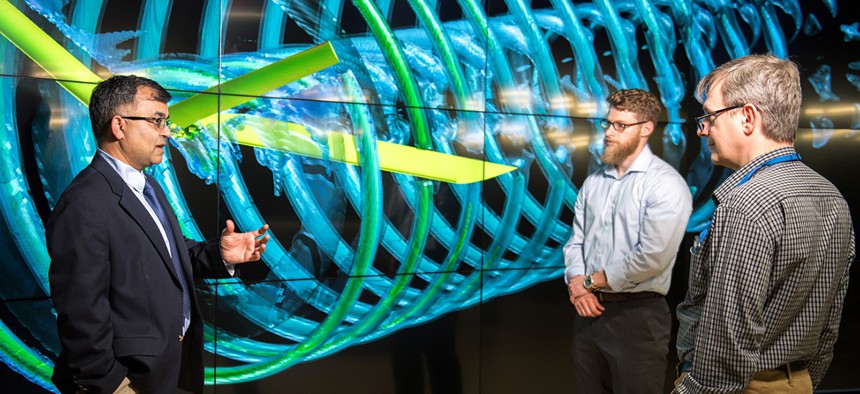The Army Will Help Uber Get Flying Taxis Off the Ground

David McNally/U.S. Army
The joint venture aims for quieter, more efficient propellers for stealth or urban flights.
The Army is joining forces with Uber to build out technology that could help get the next generation of military helicopters and a proposed fleet of flying taxis off the ground.
The rideshare company and Army Research Lab announced Tuesday they would collaborate on research exploring rotor technology that would make aircraft quieter and more efficient. The partnership would support both the Army’s Future Vertical Lift program and Uber Elevate, the company’s proposed “urban air transportation” network.
The two groups agreed to each invest $500,000 in the initial effort. The deal also leaves the door open for future research partnerships.
"This agreement with Uber displays the Army utilizing innovative approaches to collaborate with an industry partner that is truly on the cutting edge," said Jaret Riddick, director of the Vehicle Technology Directorate at ARL, in a statement. "It will allow the Army to rapidly advance mutually beneficial technology to inform objectives for silent and efficient [vertical takeoff and landing] for the next generation fleet of Army unmanned air vehicles."
The research would primarily focus on developing a first-of-its-kind stacked, co-rotating propeller system, which would essentially be two propellers build on top of each other spinning in the same direction. Unlike current stacked propellers, which rotate in opposite directions, the new system would make flying significantly quieter and more conducive for stealth or urban flights.
In addition to research, ARL will also help develop and test aircraft for the Uber Elevate program.
Uber plans to conduct its first flight demonstrations in 2020 and have the service commercially available in Dallas-Fort Worth and Los Angeles by 2023.






